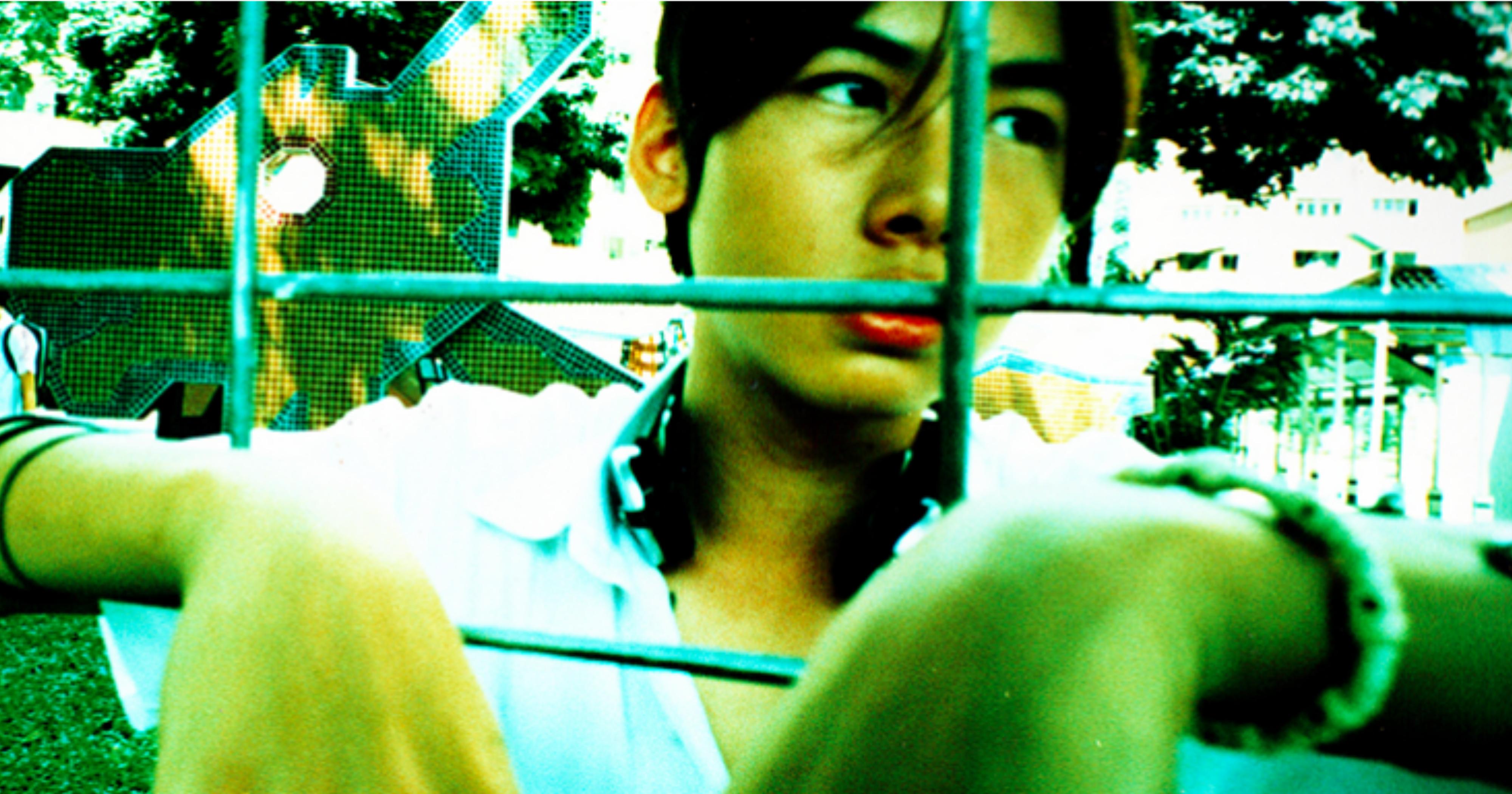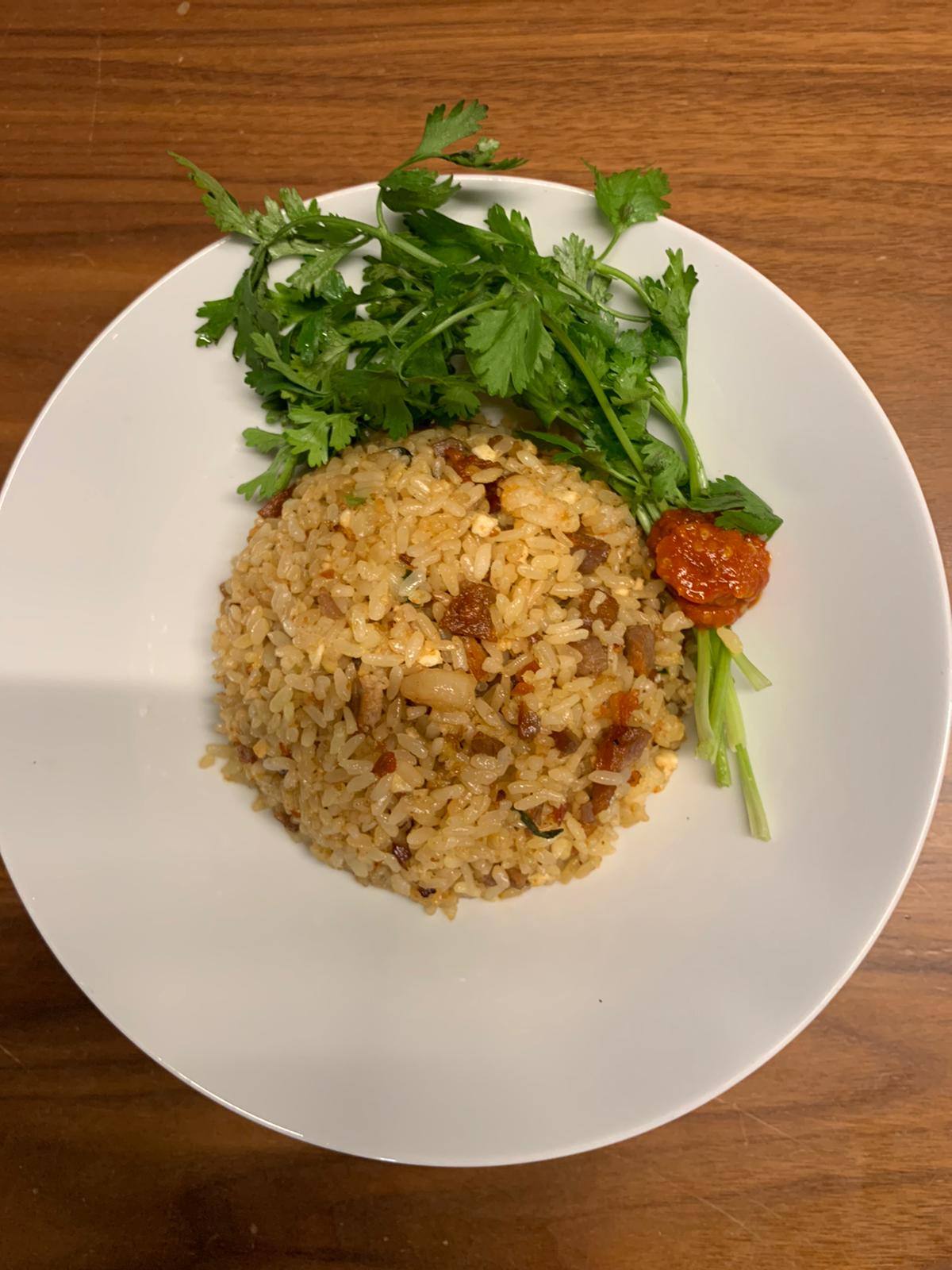Expanded from his 2002 award winning short, Royston Tan’s debut feature 15 has been kicking up a storm in his native Singapore. Taking its title from the age of its five street kid stars, whose real life experiences provided the initial inspiration, 15 is an unflinching account of youth marginalised by Singaporean society in which good grades and smart appearances are valued above individuality. These outcasts turn instead to the visceral pleasures of drugs, body modification, self-mutilation and the kinship found in gangs.
Tan describes the evolution from short to feature: “After 15 received recognition, people in the industry, including Eric Khoo (director of 12 Storeys) whose company (Zhao Wei Films) eventually produced the feature, as well as Kelvin Tong who encouraged and even persuaded me to extend 15. Their comments confirmed my own feelings there was so much more to tell with the characters and the issues raised in the short. And so with the help of Eric and countless people in the industry, we made the arduous journey to convert 15 into a feature length film.”

Audiences familiar with the films of Larry Clark (Kids, Ken Park) or Catherine Hardwicke’sThirteen will be well aware of the theme of teens having a hard time growing up and experimenting on the way. However, while Tan’s debut may not contain much in the way of social revelations, his use of real street kids and extensive improvisation infuses 15 with a raw authenticity that is often missing from sugar-coated Hollywood coming of age films. Unsettling scenes such as Shaun force-feeding himself greased condoms full of ecstasy or Armani hacking away ceaselessly at his arm with a box cutter knife, prove that knowing a thing is a world away from it happening before your eyes.
Royston Tan, Director: 15: The Movie. Royston Tan was born on October 5, 1976 in Singapore. He is a director and writer, known for 15: The Movie (2003), 4:30 (2005) and 7 Letters (2015). 15 is a 2003 Singaporean coming-of-age black comedy-drama film about teenage gangsters in the Singapore suburbs. Directed by Royston Tan, the film is an expanded version of Tan's 2002 award-winning short film, also titled 15. Actor in Royston Tan's 15 interrogated by Singapore police. With his spiky hair, infectious bonhomie and casual dress sense, the 27-year-old Singaporean film-maker Royston Tan is not obvious as a threat to national security. He has more than two dozen awards and his debut feature film, 15, last year became the first movie from Singapore to.

However, it would be misleading to suggest 15 is an endless onslaught of tragic incidents. Tan’s manipulation of style is lifted from a collective MTV / McGeneration consciousness, with the semi-documentary approach switching to Hype Williams style music video interludes, in which the protagonists sing of brotherhood and the rival gangs they will vanquish. Even the on screen violence is presented as a pseudo computer fight game, complete with colourful graphics announcing Street Fighter II style “You Win” revealing the matter of fact approach of the boys to such encounters. Tan explains, “The film attempts to depict a side of reality that most of Singaporean society either refuses to acknowledge or chooses to do nothing about. In the case of the video game sequence, it was a generalised fantasy to reflect the reality of what the boys think about to escape from their individual harsh lives. In their minds, they see themselves sometimes as heroes, either from a game or from whatever entertainment or media they have been exposed to. So the video game setting was appropriate to reflect the kind of often delusional honour values and grandeur that youths get from being involved in gangs and fights. With the rest of the scenes, we are reduced to specific characters, and filming it realistically was more appropriate to illustrate the brutality of what they go through by themselves. Adding the video game helped by adding levity in between an onslaught of non-stop heavy scenes.”
15 received a less than enthusiastic reaction from Singapore’s Board of Film Censors. Despite recent relaxations in censorship laws, the board felt the need to make a record-breaking 27 cuts and restrict 15 to an R(A) rating (over 21s and above) limited to four screens, while banning it from DVD or home video, citing possible gang fights and the promotion of civil unrest. In response Tan created a new short, Cut, which gently lampoons the board of censors, who were less than pleased. Coincidentally, Tan’s yearly government grant was discontinued. “I believe that the cut-off is probably due to 15 and Cut. It saddens me to have the issues and intentions of my films misunderstood. But that being said, the government has a lot more other responsibilities to account for and a lot of other national issues of greater importance that warrant more attention than artistic integrity, so I respect their decision. There is little point to return distrust with distrust, so I trust my government to do what it feels is right, and hope some day we may come to a common understanding.”
With 15 breaking records as the fastest ever sell-out film in the history of the Singapore Film Festival and a hit at festivals around the world, does Tan feel under pressure to continually smash boundaries? “There is pressure, but the pressure, as always, is never from external factors but from within. It’s all well and good to listen to the good and bad that come at you after you’ve accomplished something. But finally, I’m my worse critic. I’m of course aware of the expectations and opportunities that come with exposure. But my attitude to whatever role I’m expected to fulfill is cordial. I’m usually too busy worrying about my next project to consider how to push the envelope.”
Royston Tan 15 Cast
In addition to preparing for a retrospective of his short films in Japan, Tan is shooting a new short film called Monkey Love; however, June will see shooting begin for Tan’s second feature 4:30, a film about urban loneliness. 15 was released in UK cinemas on 4 February. A selection of Tan’s work can be seen on the Zhao Wei Films.
– Originally published in Showreel, Issue 7 (Spring 2005)
Police censor fly-on-wall tale of gang lifeAcclaimed film dubbed a threat to Singapore's national security
John Aglionby in SingaporeMonday January 5, 2004
The Guardian
With his spiky hair, infectious bonhomie and casual dress sense, the 27-year-old Singaporean film-maker Royston Tan is not obvious as a threat to national security.
He has more than two dozen awards and his debut feature film, 15, last year became the first movie from Singapore to compete at the Venice film festival.
'15 is the best Singaporean work for the last few years,' said Philip Cheah, director of the Singapore international film festival, of the drama about a teenage gang of misfits struggling to survive in the abandoned underbelly of the city state's supposedly squeaky-clean society.
But Singapore's police, reflecting the government's obsession with social order and national stability, dubbed the film a threat to national security.
Much of 15, which is cast with real teenage gang members, has no discernible plot, due partly to the fact that one of the stars was arrested for stabbing another gang member halfway through filming. It is a no-holds-barred, fly-on-the-wall part-documentary, part-drama of their unconventional lifestyle.
One 'actor' repeatedly slashes his wrists with a box cutter, another forces a condom packed with drugs down his throat to smuggle overseas, two pierce each others' faces to insert studs and one squirms as he gets a rudimentary tattoo.
'The act of inflicting pain on themselves is like a form of rebellion,' Tan said. 'I think I do have a responsibility [to intervene] but I have a greater responsibility to tell the audience how they lead their lives.
'You know that shows a very real side of their lives and there's a growing number of kids like this.'
Police statistics confirm this. Crimes committed by children aged seven to 15 rose 56% in Singapore in the first six months of this year compared with the same period last year, while youth crime in 2002 was 55% higher than in 2001.
But Singaporeans have no need to learn about this niche of their society in such a graphic way and through a vehicle with no moral message, according to the authorities - even though the Singapore Film Council funded 25% of 15's S$200,000 (£68,000) production costs.
'The police were concerned about scenes which featured real-life gang chants which had resulted in gang fights when they were sung in public places,' said a spokeswoman for the Media Development Authority, which oversees censorship. 'The film also named actual secret societies and their operational grounds which the police felt would serve to promote and give prominence to these gangs.'
The censorship board reportedly wanted only one cut before approving 15's release in Singapore, a brief shot of a 17cm (7in) penis, while the police insisted on 26 further deletions. After four months of deliberations 15 was released with about 10 of its 100 minutes expunged, but with an 18 rating and not in suburban cinemas.
Tan had prepared a version for Singapore with the penis and a few other shots deleted but was not prepared for the scale of the controversy. But he says he is unable to discuss the way his film was treated.
 'I've been advised not to talk about censorship, that we should move on,' he said, admitting only that one of the stars, Shaun Tan (no relation), had told him police had interrogated him.
'I've been advised not to talk about censorship, that we should move on,' he said, admitting only that one of the stars, Shaun Tan (no relation), had told him police had interrogated him.Royston Tan 15 C
'Shaun [told me he] was threatened to be stripped and have cold water poured over him if he didn't give the answers they wanted,' he said. 'It's strange I haven't been questioned. I offered myself but they didn't want to speak to me.'The police declined to comment on this allegation.
Singaporeans' desire to see 15 was unambiguously demonstrated on the only occasion it was shown uncensored, at the Singapore international film festival. 'The 1,002 tickets sold out in less than a day, breaking the record for the festival,' Tan said.
But perhaps 15's greatest accolade was not winning the international film critics' award at the festival, but the authorities' response.
Last month the national crime prevention council and police released their own 90-minute feature about gang life and the consequences of teenage recidivism, After School.
'We were told this film was made to correct the image of Singapore that 15 did not give,' Tan said. 'They said 15 is an extreme film while their film brings out the right consequences of crime.
'That's the biggest compliment that somebody could ever give me.'
The executive director of the crime prevention council, Lee Chee Chiew, denies this, saying he has never seen 15 and cannot comment on any comparison.
A police spokesman, Acting Superintendent Ang Poon Seng, said the decision to make a film was merely 'to harness the power of movies and their widespread popularity among teenagers' and had nothing to do with 15.
The two films' styles are undoubtedly very different and After School is laced with such moralising soundbites as: 'There's nothing to lose, just walk away'; 'The police are so powerful they can target anyone'; 'How can he survive if he has a criminal record?'; and 'The things that come free are actually the most expensive.'
'The films differ in terms of treatment and messaging,' the Media Development Authority spokeswoman said.
'After School is about love and the importance of family bonding, and carries a clear anti-crime message. 15 focuses on secret societies and teen gangs, and has no clear moral message.'